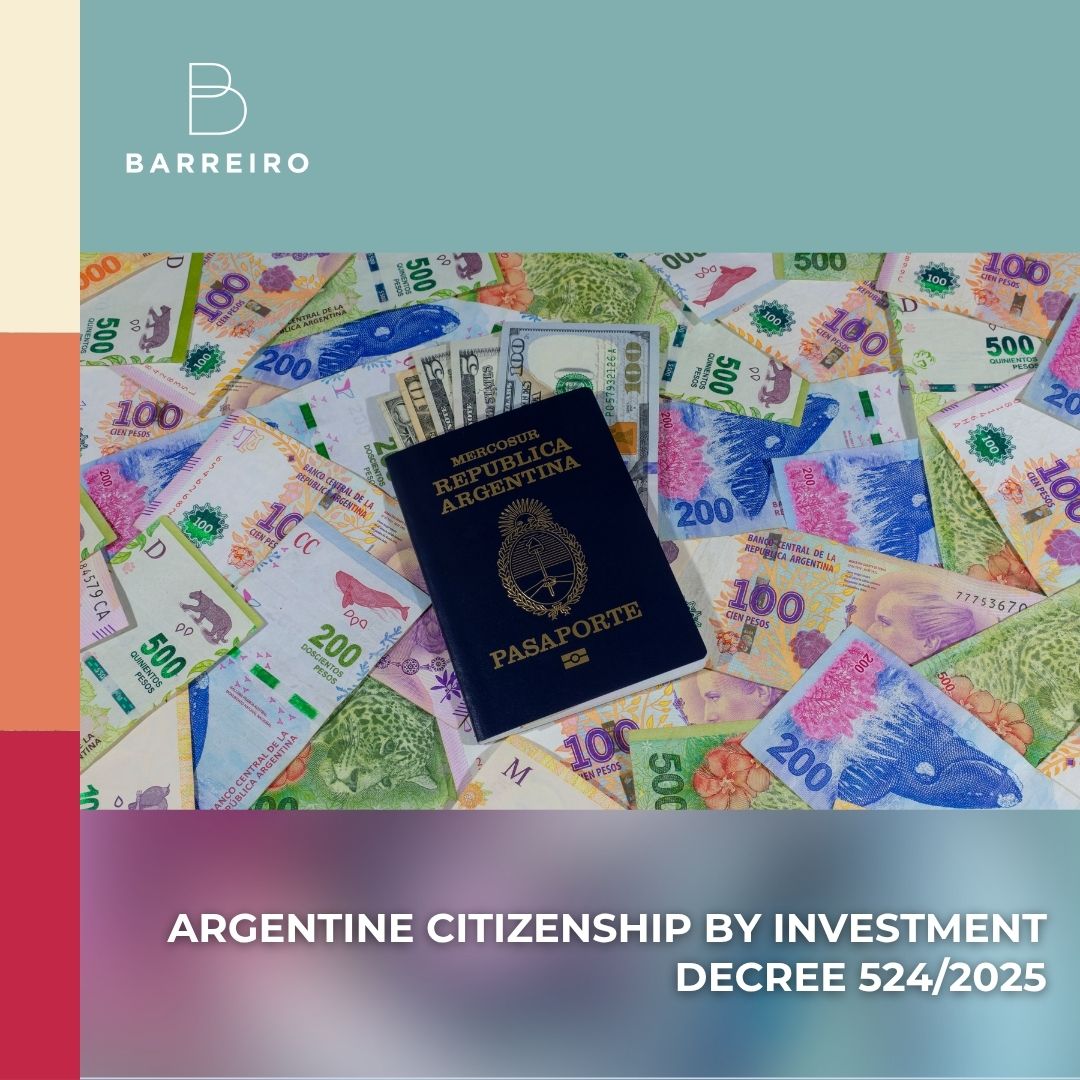Argentine citizenship by investment? Yes, it’s now possible

Analysis of Decree 524/2025
This new decree regulates the pathway to obtaining Argentine citizenship through investment, which had been introduced via Decree 366/2025, amending Citizenship Law No. 346. In essence, it allows foreign nationals to acquire citizenship without meeting prior residency requirements, provided they make a “relevant investment” in the country.
Key Points of the Procedure
1. Application Submission:
The foreign investor must apply for citizenship before the Agency for Citizenship by Investment Programs, under the Ministry of Economy.
2. Investment Assessment:
-
The Agency will determine whether the investment is “relevant,” based on criteria defined by the Ministry of Economy.
-
No official guidelines have been published yet regarding minimum amounts, eligible sectors, or investment types.
3. Security and Background Screening:
-
If the investment qualifies as relevant, a thorough background check is triggered.
-
Several agencies are involved: Ministry of Security, FIU, RENAPER, Intelligence Agency, Criminal Records Registry, among others.
-
Authorities will assess whether the applicant poses any risk to national security or strategic interests.
4. Final Decision:
-
The Agency issues a report recommending approval or denial.
-
The National Directorate of Migration then has 30 business days to issue a resolution.
5. CUIT and Tax Registration:
-
Once citizenship is granted, the Tax and Customs Revenue Agency (ARCA) must facilitate the issuance of a CUIT (Argentine tax ID).
6. Supplementary Regulations:
-
The Agency may issue additional rules to clarify procedures and evaluation criteria.
Implications for Foreign Investors
Opportunities
-
Direct access to citizenship:
Investors can bypass lengthy traditional immigration paths (e.g., years of residency or naturalization by marriage/children). -
Legal and political stability:
Citizenship may offer protection against future legal changes or restrictions on foreigners. -
Active participation in the economy:
The program aims to attract capital that promotes job creation, innovation, and productive development. -
Global reputation:
Argentina joins other countries with citizenship-by-investment programs, appealing to high-net-worth individuals.
Challenges
-
Undefined “relevant investment”:
The Ministry of Economy has yet to determine minimum investment amounts, eligible sectors, or accepted formats (e.g., real estate, bonds, startups), leading to uncertainty. -
Strict security screening:
The process is not automatic and involves in-depth reviews of personal, legal, and financial backgrounds.
Authorities can veto applications on national security grounds. -
Potential delays and red tape:
While the final decision has a 30-day deadline, the prior verification stages may be time-consuming and require coordination across multiple government bodies. -
Changing conditions:
Since criteria will depend on forthcoming regulations, eligibility requirements could shift, affecting predictability for applicants.
Conclusion
Decree 524/2025 marks a significant step in Argentina’s immigration and economic policy, seeking to attract foreign investment by offering a tangible benefit: citizenship. However, its practical success will depend on how clearly and efficiently the Ministry of Economy defines what constitutes a “relevant investment.”
For interested investors, it will be essential to closely monitor upcoming regulations and secure proper legal and tax advisory to navigate a process that, while promising, still carries uncertainties.
Do you have clients or projects that may qualify? At BARREIRO, we are ready to help you analyze the landscape and plan the best strategy.